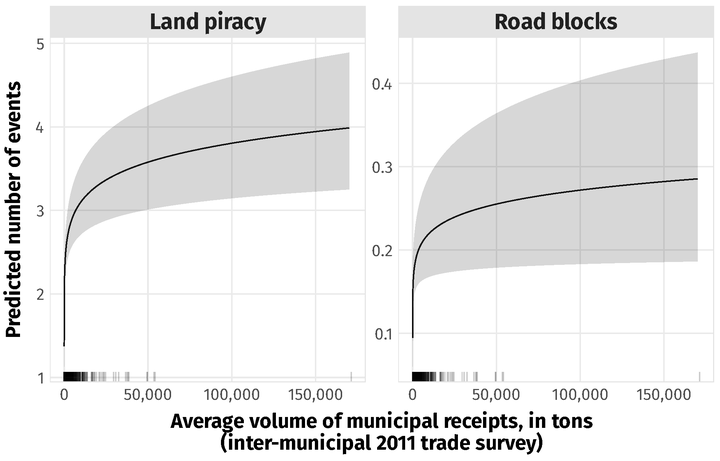Economic subversion in civil wars: Evidence from the Colombian armed conflict

Rebel groups, often too weak to defeat the state in direct combat, adopt strategies to erode its capacity and resolve. One important class of such tactics – what we call economic subversion – are attacks that disrupt economic activity and impose large costs on the state, elites, and civilians. We conceptualize economic subversion as an umbrella class of rebel tactics that disrupt ``business as usual’’, regardless of whether economic harm is the primary motive. This approach helps connect related concepts in the literature, including looting, sabotage, and other tactics. We further theorize that the economic value of a locale should incentivize rebel subversion, while state fortification efforts should deter it, and test our concept using historical data from the Colombian armed conflict. On the incentive side, we show that rebels are more likely to engage in economic subversion in municipalities important to internal trade, especially during formal negotiations with the state. On the deterrent side, we find mixed, inconclusive evidence via a difference-in-difference design that a large-scale policing effort failed to deter rebel subversion. These findings highlight the substantial leeway rebels have to inflict painful economic costs on the state.